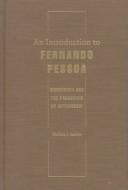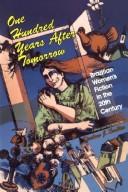| Listing 1 - 10 of 10 |
Sort by
|
Book
ISBN: 0292739303 0292739311 0292749805 Year: 2012 Publisher: Austin : University of Texas Press,
Abstract | Keywords | Export | Availability | Bookmark
 Loading...
Loading...Choose an application
- Reference Manager
- EndNote
- RefWorks (Direct export to RefWorks)
Cultural diplomacy—“winning hearts and minds” through positive portrayals of the American way of life—is a key element in U.S. foreign policy, although it often takes a backseat to displays of military might. Americans All provides an in-depth, fine-grained study of a particularly successful instance of cultural diplomacy—the Office of the Coordinator of Inter-American Affairs (CIAA), a government agency established by President Franklin D. Roosevelt in 1940 and headed by Nelson A. Rockefeller that worked to promote hemispheric solidarity and combat Axis infiltration and domination by bolstering inter-American cultural ties. Darlene J. Sadlier explores how the CIAA used film, radio, the press, and various educational and high-art activities to convince people in the United States of the importance of good neighbor relations with Latin America, while also persuading Latin Americans that the United States recognized and appreciated the importance of our southern neighbors. She examines the CIAA’s working relationship with Hollywood’s Motion Picture Society of the Americas; its network and radio productions in North and South America; its sponsoring of Walt Disney, Orson Welles, John Ford, Gregg Toland, and many others who traveled between the United States and Latin America; and its close ties to the newly created Museum of Modern Art, which organized traveling art and photographic exhibits and produced hundreds of 16mm educational films for inter-American audiences; and its influence on the work of scores of artists, libraries, book publishers, and newspapers, as well as public schools, universities, and private organizations.
World War, 1939-1945 --- Cultural industries --- Popular culture --- Diplomatic history. --- Political aspects --- History --- United States --- Latin America --- Relations --- Cultural policy. --- Foreign relations --- Intellectual life --- Culture, Popular --- Mass culture --- Pop culture --- Popular arts --- Communication --- Mass society --- Recreation --- Culture --- Creative industries --- Culture industries --- Industries --- Historiography
Book
ISBN: 1283582880 9786613895332 0252092325 9780252092329 9780252034640 0252034643 9780252076558 0252076559 9781283582889 6613895334 Year: 2009 Publisher: Urbana
Abstract | Keywords | Export | Availability | Bookmark
 Loading...
Loading...Choose an application
- Reference Manager
- EndNote
- RefWorks (Direct export to RefWorks)
Motion pictures --- National characteristics, Latin American. --- Latin American national characteristics --- Film --- Latin America

ISBN: 0813023904 9780813023908 0813015839 Year: 1998 Publisher: Gainesville University Press of Florida
Abstract | Keywords | Export | Availability | Bookmark
 Loading...
Loading...Choose an application
- Reference Manager
- EndNote
- RefWorks (Direct export to RefWorks)
Romance Literatures --- Languages & Literatures --- Portuguese Literature --- Pessoa, Fernando, --- Pessoa, Fernando --- Caeiro, Alberto --- Reis, Ricardo --- de Campos, Alvaro --- de Teive, --- van Teive, --- Soares, Bernardo --- Search, Alexander --- Criticism and interpretation.

ISBN: 0585000913 9780585000916 0253115698 9780253115690 9786612079788 6612079789 1282079786 9781282079786 025335045X 9780253350459 0253206995 9780253206992 Year: 1992 Publisher: Bloomington Indiana University Press
Abstract | Keywords | Export | Availability | Bookmark
 Loading...
Loading...Choose an application
- Reference Manager
- EndNote
- RefWorks (Direct export to RefWorks)
"Appearing for the first time in English, these stories express the anguish and courage of women from their different classes and regions as they recognize their common restlessness and forge a new consciousness."--Booklist" . . . provocative . . . Although not all the pieces are outwardly political, there is a political edge to the book; the tone of the stories is bleak as they tell of Brazilian women's struggles with government, society, men and their own private demons. Sadlier's able translations retain a distinctive voice and style for each writer." --Publishers Weekly"Sadlier . . . has done a service to students of Comparative Literature and Women's Studies as well as to general readers who sincerely want to know what literature of quality is being written in that all-too-rarely studied Portuguese language of Brazil."--Revista de Estudios Hispanicos"The pieces . . . convey . . . the evolution in the consciousness of the writers, their sense of themselves, and their place in society as well as the changes affecting Brazil's political climate and society at large during this century."--Review of Contemporary Fiction"A superb addition to the increasing number of anthologies dedicated to Brazilian literature." --Choice"A must for any modern literary collection." --WLW JournalWomen writers have revolutionized Brazilian literature, and this impressive collection will provide English readers with a window on this revolution. These twenty previously untranslated selections by some of Brazil's most important writers illustrate the remarkable power of women's voices and the important contributions they have made to twentieth-century literature.
Brazilian Fiction --- Short Stories, Brazilian --- Fiction --- Literary Criticism --- Brazilian fiction --- Short stories, brazilian --- Literary criticism
Book
ISBN: 1477310533 1477310525 Year: 2016 Publisher: Austin, [Texas] : University of Texas Press,
Abstract | Keywords | Export | Availability | Bookmark
 Loading...
Loading...Choose an application
- Reference Manager
- EndNote
- RefWorks (Direct export to RefWorks)
Long before the concept of “globalization,” the Portuguese constructed a vast empire that extended into Africa, India, Brazil, and mid-Atlantic territories, as well as parts of China, Southeast Asia, and Japan. Using this empire as its starting point and spanning seven centuries and four continents, The Portuguese-Speaking Diaspora examines literary and artistic works about the ensuing diaspora, or the dispersion of people within the Portuguese-speaking world, resulting from colonization, the slave trade, adventure seeking, religious conversion, political exile, forced labor, war, economic migration, and tourism. Based on a broad array of written and visual materials, including historiography, letters, memoirs, plays, poetry, fiction, cartographic imagery, paintings, photographs, and films, The Portuguese-Speaking Diaspora is the first detailed analysis of the different and sometimes conflicting cultural productions of the imperial diaspora in its heyday and an important context for understanding the more complex and broader-based culture of population travel and displacement from the former colonies to present-day “homelands.” The topics that Darlene J. Sadlier discusses include exploration and settlement by the Portuguese in different parts of the empire; the Black Atlantic slave trade; nineteenth-century travel and Orientalist imaginings; the colonial wars; and the return of populations to Portugal following African independence. A wide-ranging study of the art and literature of these and other diasporic movements, this book is a major contribution to the growing field of Lusophone studies.
Art, Portuguese --- Portuguese literature --- Ethnicity --- Portuguese --- History. --- Portugal --- Colonies --- Emigration and immigration --- Ethnology --- Ethnic identity --- Group identity --- Cultural fusion --- Multiculturalism --- Cultural pluralism --- Portuguese art --- Grupo do Leão (Group of artists) --- al-Burtughāl --- al-Jumhūrīyah al-Burtughālīyah --- Burtughāl --- Jumhūrī-i Purtughāl --- Jumhūrīyah al-Burtughālīyah --- Lusitania (Portugal) --- Portekiz --- Portekiz Cumhuriyeti --- Portogalia --- Portogallo --- Portugál Köztársaság --- Portugali --- Portugalia --- Portugalii︠a︡ --- Portugalská republika --- Portugalʹskai︠a︡ Respublika --- Portugalsko --- Portugiesische Republik --- Portuguese Republic --- Porutogaru --- Porutogaru Kyōwakoku --- P'orŭt'ugal --- P'orŭt'ugal Konghwaguk --- Purtughāl --- Putaoya --- Putaoya Gongheguo --- Repubblica Portoghese --- Republica Portugheză --- República Portuguesa --- Republika Portugalska --- République portugaise --- Sefarad --- Португальская Республика --- Португалия --- פורטוגל --- البرتغال --- الجمهورية البرتغالية --- برتغال --- جمهوري پرتغال --- جمهورية البرتغالية --- پرتغال --- ポルトガル --- ポルトガル共和国 --- 葡萄牙 --- 葡萄牙共和国 --- 포르투갈 --- 포르투갈공화국
Book
ISBN: 9780292718562 9780292718579 Year: 2008 Publisher: Austin, Tex. University of Texas Press
Abstract | Keywords | Export | Availability | Bookmark
 Loading...
Loading...Choose an application
- Reference Manager
- EndNote
- RefWorks (Direct export to RefWorks)
Iconography --- History of civilization --- anno 1500-1799 --- anno 1800-1999 --- anno 2000-2009 --- Brazil
Book
ISBN: 1839024976 9781839024979 Year: 2023 Publisher: London Bloomsbury on behalf of the British Film Institute
Abstract | Keywords | Export | Availability | Bookmark
 Loading...
Loading...Choose an application
- Reference Manager
- EndNote
- RefWorks (Direct export to RefWorks)
Book
ISBN: 9780292739314 0292739311 9780292739307 0292739303 Year: 2021 Publisher: Austin
Abstract | Keywords | Export | Availability | Bookmark
 Loading...
Loading...Choose an application
- Reference Manager
- EndNote
- RefWorks (Direct export to RefWorks)
Book
ISBN: 9780292793958 Year: 2021 Publisher: Austin
Abstract | Keywords | Export | Availability | Bookmark
 Loading...
Loading...Choose an application
- Reference Manager
- EndNote
- RefWorks (Direct export to RefWorks)
Book
ISBN: 9781477310533 1477310533 9781477310540 1477310541 9781477310526 1477310525 9781477311486 1477311483 Year: 2021 Publisher: Austin
Abstract | Keywords | Export | Availability | Bookmark
 Loading...
Loading...Choose an application
- Reference Manager
- EndNote
- RefWorks (Direct export to RefWorks)
| Listing 1 - 10 of 10 |
Sort by
|

 Search
Search Feedback
Feedback About UniCat
About UniCat  Help
Help News
News